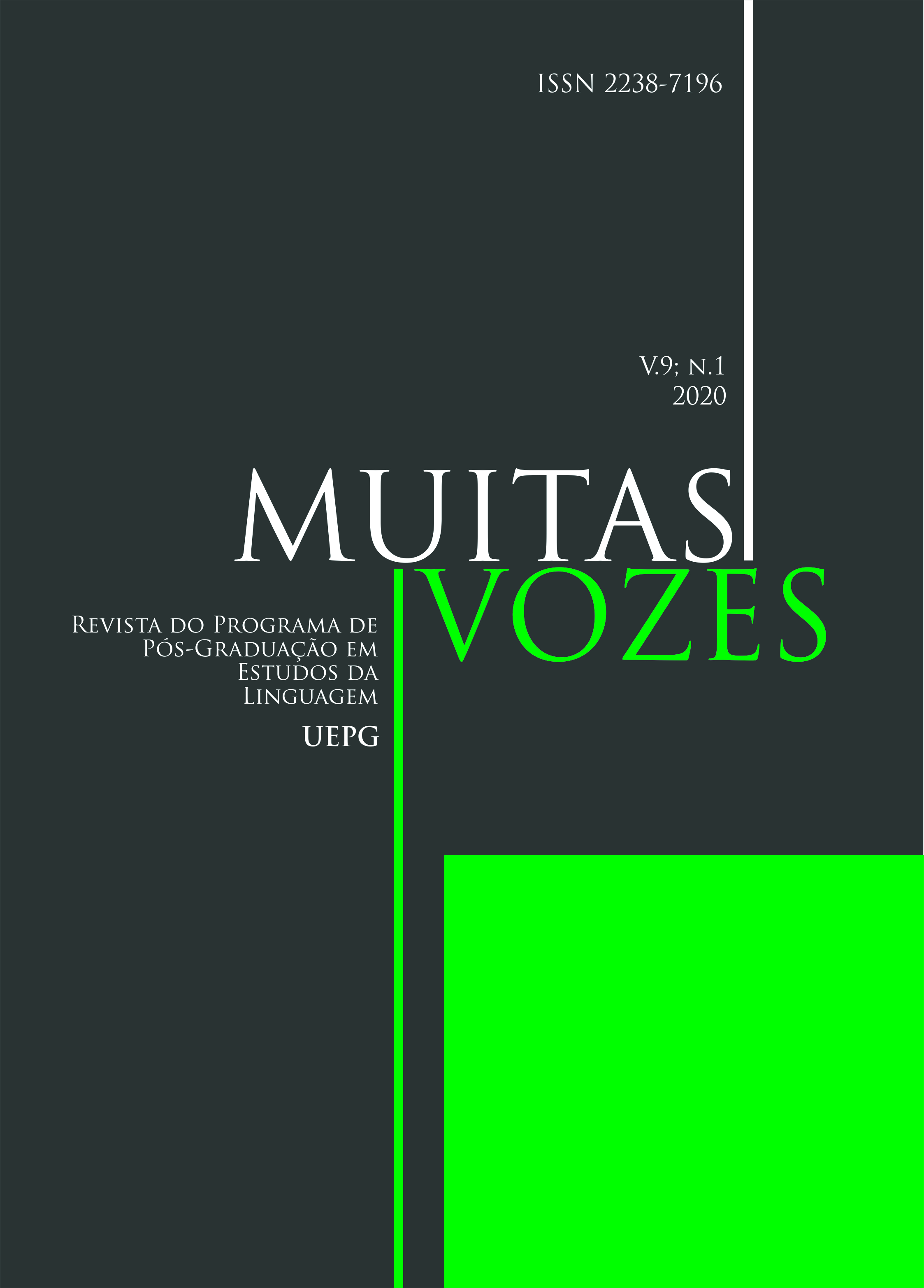DESCRIÇÃO QUALITATIVA DA CONCORDÂNCIA VERBAL: A ALTERNÂNCIA PRONOMINAL ENTRE NÓS E A GENTE
Résumé
Revisitando a literatura gramatical (CUNHA; CINTRA, 2001; PERINI, 2005; BECHARA, 2009; ROCHA LIMA, 2011), contraposta a outros estudos, como os de Souza (2017), de Tarallo (1985) e de Monteiro (2008), este artigo objetiva discutir a Alternância Pronominal (AP) entre nós e a gente, juntamente com a Concordância Verbal (CV), a fim de descrever o comportamento de um único falante, atingindo certo grau de homogeneidade linguística. Para tanto, selecionamos, por amostragem aleatória, um inquérito do banco de dados Iboruna (GONÇALVES, 2007). Identificamos uma preferência pelo uso do a gente em relação ao nós e ao sujeito oculto; no entanto, nas ocorrências do uso do pronome pessoal nós, há preferência do informante pelo tempo verbal em forma coloquial, pois se apresenta por pretérito perfeito.
Téléchargements
Téléchargements
Publié-e
Comment citer
Numéro
Rubrique
Licence

Este obra está licenciado com uma Licença Creative Commons Atribuição 4.0 Internacional.
Transferência de direitos autorais: Caso o artigo submetido seja aprovado para publicação, JÁ FICA ACORDADO QUE o autor AUTORIZA a UEPG a reproduzi-lo e publicá-lo na REVISTA MUITAS VOZES, entendendo-se os termos "reprodução" e "publicação" conforme definição respectivamente dos incisos VI e I do artigo 5° da Lei 9610/98. O ARTIGO poderá ser acessado tanto pela rede mundial de computadores (WWW - Internet), como pela versão impressa, sendo permitidas, A TÍTULO GRATUITO, a consulta e a reprodução de exemplar do ARTIGO para uso próprio de quem a consulta. ESSA autorização de publicação não tem limitação de tempo, FICANDO A UEPG responsável pela manutenção da identificação DO AUTOR do ARTIGO.



